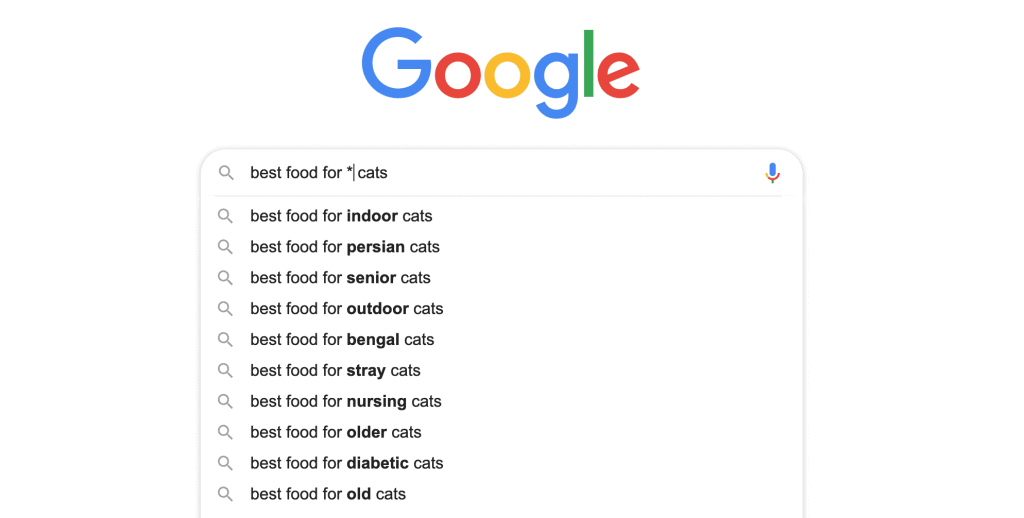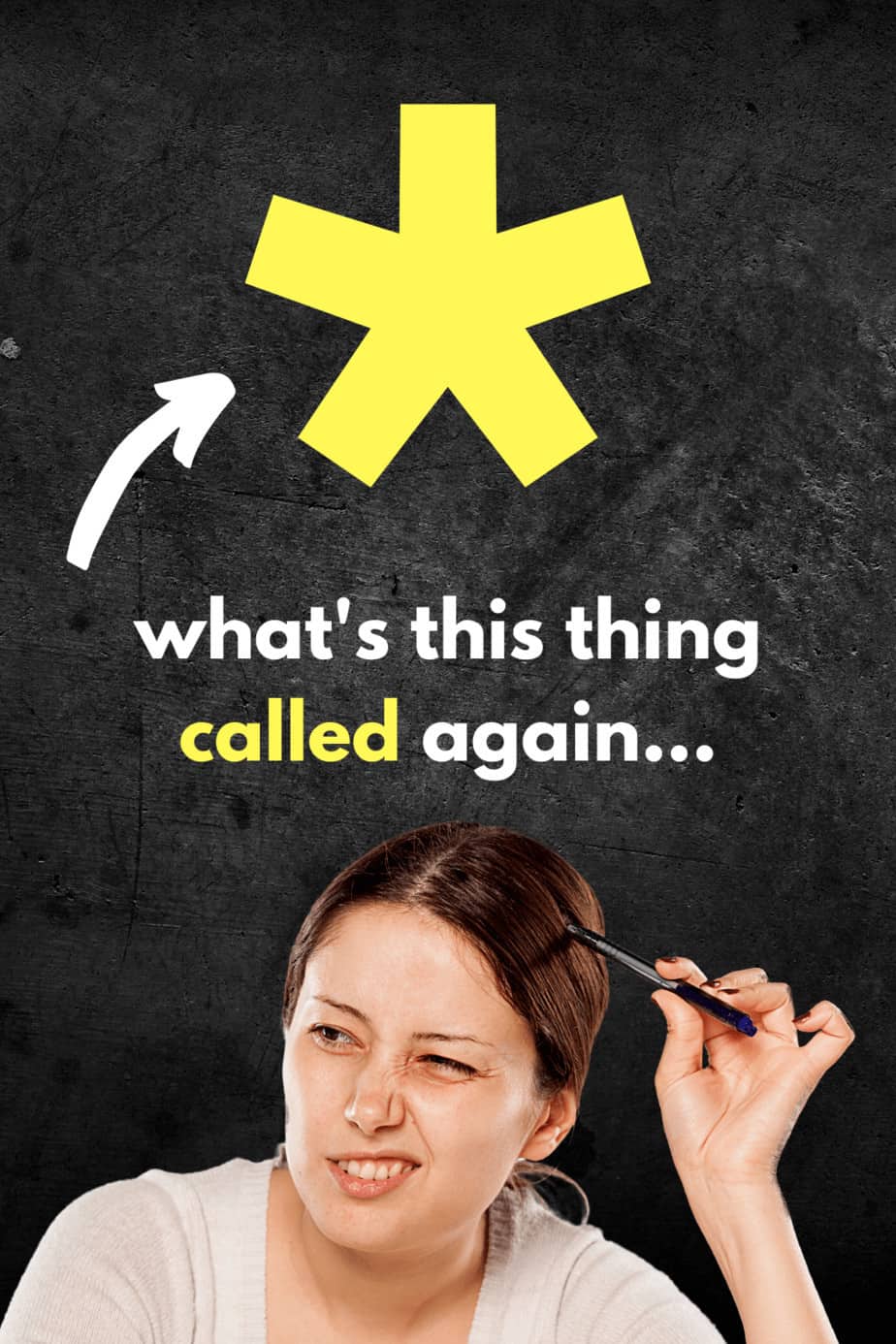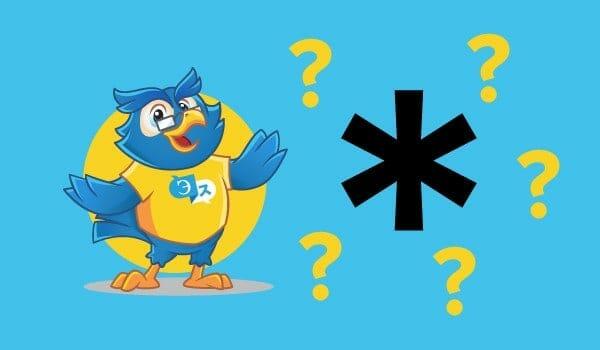What is the little star symbol (*) called?
In English, the symbol * is generally called asterisk. Depending on the context, the asterisk symbol has different meanings. In Math, for instance, the asterisk symbol is used for multiplication of two numbers, let’s say 4 * 5; in this case, the asterisk is voiced ‘times,’ making it “4 times 5”.
In software applications, the asterisk is often used as a wildcard symbol. In any kind of text, the asterisk can be used to provide additional information about (a) specific word(s) of the text.
The asterisk symbol in math
The asterisk is serving different purposes in Math:
- To denote multiplication, such as in 4 * 4 (same as 4 x 4)
- As a superscript, the asterisk symbol (here it is called A-star) refers to the A* search algorithm
- In some computational languages such as in the Wolfram Language and Fortran, a double star symbol (**) also serves some purposes
The asterisk as a wildcard symbol
In different software applications, the asterisk is used as a wildcard symbol. A wildcard is some kind of a placeholder that can be filled with different parameters, depending on the software.
Let’s take Google as an example. Google’s search engine lets you use the asterisk as a wildcard when typing in keywords in their search engine.
If you are planning to build your own website, for instance, you can use the asterisk to your favor to find out what people are looking for in your niche.
Let’s say you are a cat lover and you would like to build a website about cats, where you provide information about everything cat-related.
To find out what people are interested in, you could simply go to Google.com and then there type in best food for cats.
Well, you will certainly find some good search results like that. But to make things more interesting, you can spice this up a little bit, by inserting a wild card between for and cats:
Your search query then looks like this: Best food for * cats.

As a content creator or website builder, this is indeed very helpful because it provides you with many new content ideas.
The asterisk symbol as an annotator for additional info
In many cases, the asterisk symbol is simply used to give additional info about (a) certain word(s) in the text. The additional info usually figures at the end of the text/paragraph/section.
Example:
This text is all about the meaning of 之* in the Chinese language.
* In Pinyin, the official romanization system for Standard Chinese, 之 is written as “zhī.”
How do you type the asterisk symbol on your keyboard?
If you would like to use the asterisk symbol in your text as a wildcard symbol, math symbol or who knows who for what purpose, here is how you do it:
On a Mac:
If you are using a US-Layout keyboard, type Shift + 8 to produce the asterisk.
If you are on a German-Layout keyboard, type Shift + Exclamation mark (!)
Alternatively, you can also produce an asterisk by holding down the ALT key and then type 002a. However, this only works if you switch the input method to Unicode hex input first.
On Windows:
If you are on Windows, the asterisk can be written like this:
- Option 1: Press and hold the ALT key and then type 42
- Option 2: Press and hold the SHIFT key and then press 8

Frequently asked questions related to the star symbol *
What is the symbol * called on the keyboard?
It is called asterisk. A more informal way to refer to the asterisk symbol is calling it “star” or “little star” symbol.
What is the asterisk symbol used for in baseball?
In baseball, an asterisk next to the name of a baseball player simply means that this baseball player is known to have used steroids.
What is the meaning of two asterisk symbols next to each other (**)?
A single asterisk is often used to annotate text with additional information. The same goes for two asterisks. In the same fashion as with footnotes, two asterisks, therefore, just mean that there is yet another remark (additional info) about (a) word(s) in the text. Instead of Cats2 it would be written as Cats**.
At the end of the text/section/paragraph, you would then give the according additional info by starting off with ** just like this:
(* When we talk about cats in this context, we are only talking about British Short Hair Cats.)
** Cats are just too cute, I am sorry but I can’t help myself.

Hey fellow Linguaholics! It’s me, Marcel. I am the proud owner of linguaholic.com. Languages have always been my passion and I have studied Linguistics, Computational Linguistics and Sinology at the University of Zurich. It is my utmost pleasure to share with all of you guys what I know about languages and linguistics in general.

